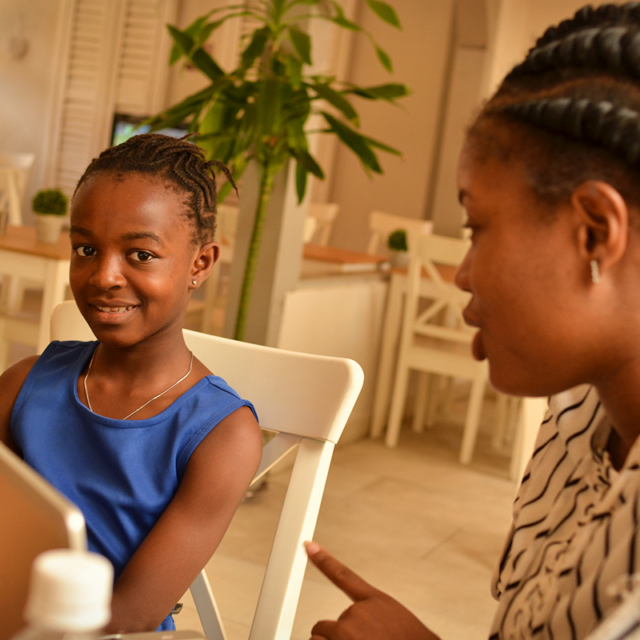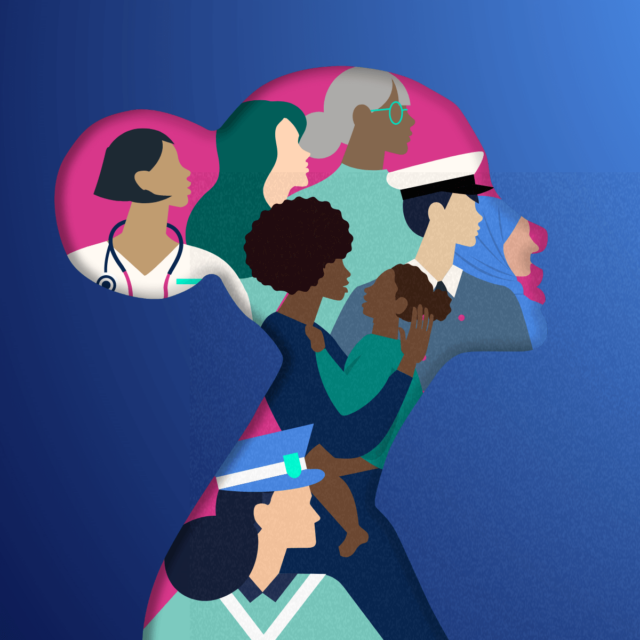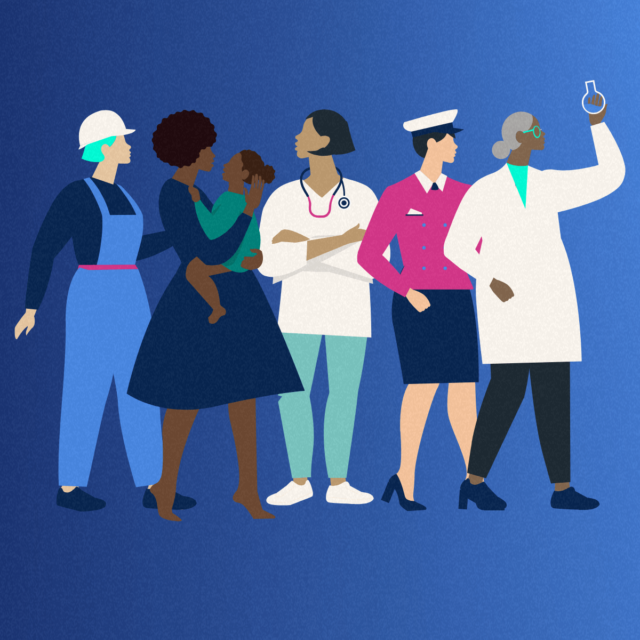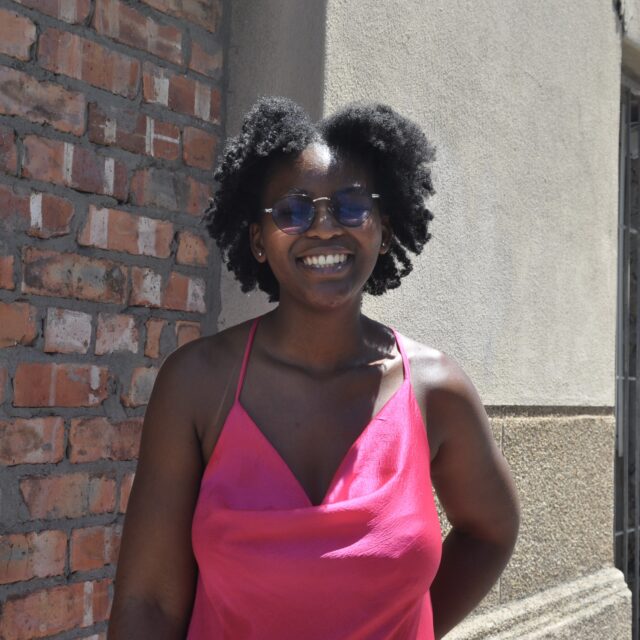Story and photos by Cooper Inveen.
It’s a sunny afternoon on Freetown’s sandy beachfront, and 11-year-old Fatima Morenike is eating ice cream with Agnes Mimi Bengali, a Sierra Leonean biologist. Over the last year, Fatima and Agnes have met twice a month to touch base and talk science.
Fatima is one of two girls put forward by her school to take part in a mentorship program designed by STEM Women Sierra Leone – a local collective of 58 women in the fields of science, tech, engineering and mathematics dedicated to empowering young girls with a passion for science.
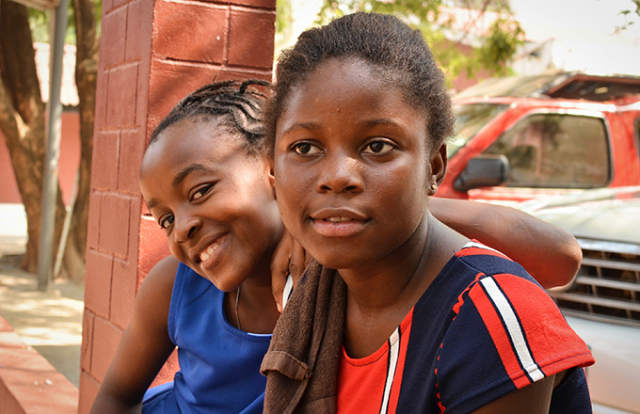
Students Fatima, left, and Gladys.
The group mentors 50 girls from all over the country, and of the 14 students that were eligible to take their secondary school entrance exams last July, each one passed with flying colors. Since her mother’s death in 2012, Fatima has been living with an aunt who doesn’t value education, so the encouragement she is receiving through the mentorship is life-changing.
Since she first met Agnes, Fatima has graduated from primary to junior secondary school and even been offered a scholarship to study in Nigeria from Sierra Leone’s First Lady.
STEM Women Sierra Leone was founded in April 2016 by Kumba Liliana Musa, a 27-year-old engineer from Freetown. Inspired by her father’s life-long commitment to women’s rights and frustrated by the lack of women in her field, Musa personally recruited dozens of local doctors, engineers, geologists and others to help form STEM Women, the first organization of its kind in a country where a quarter of adolescents are out of school, according to UNESCO. In December, she was chosen to receive the Queen’s Young Leadership Award, which she will personally receive from the Queen later this year.
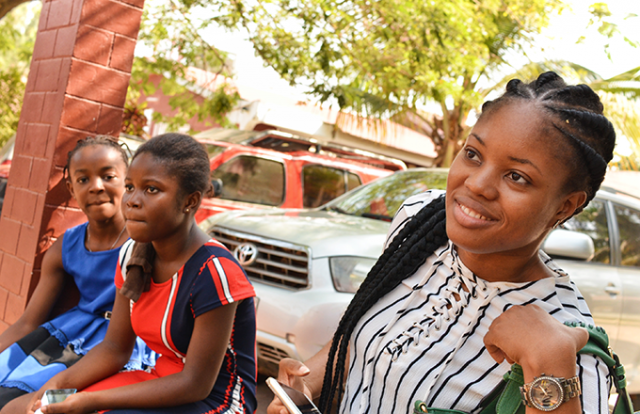
From left: Fatima, Gladys, and biologist and mentor Agnes.
“The goal is not only to get more girls involved in STEM, but also to improve STEM education [in Sierra Leone] itself,” says Kumba. “It makes no sense to just tell girls about our field when the educational system here is so lacking. I’ve been through it, and it did not prepare me at all for what I met in the field. So education is our primary focus.”
Over the course of the organization’s first year, members of STEM Women have visited more than two dozen schools to talk about careers in science and math. They also collected textbooks and other materials for their 50 mentees and held multiple events – all out of their own pockets. Additionally, they sent eight students to a week-long girls’ camp organized by the Office of the First Lady, where Fatima received her scholarship.
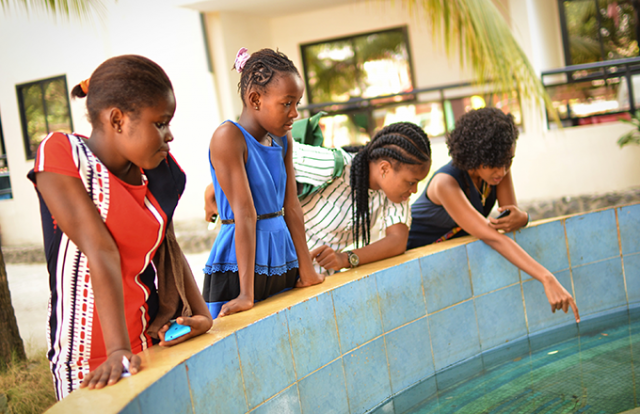
From left: Students Gladys and Fatima, with mentors Agnes and Nadia.
The challenges of working in a developing country are numerous. More traditional parents have been hesitant to support their daughters’ interests in science, and mentors struggle to communicate with students who don’t have access to cell phones. Agnes recalls filing a request for a bus from Sierra Leone’s Road Transit Authority in order to organize a field trip for the girls, which was denied, she said, on grounds that the department didn’t have any buses capable of going uphill.
As STEM Women continues to grow in Sierra Leone, the program plans to follow each girl through secondary school and on to college, with a university-level mentorship scheme currently in the works. By the organization’s first birthday in April, they also aim to launch a tutoring program with lesson plans and exercises specific to each student, based on their personal interests. If a student changes their mind about science in that time, it would be no wasted effort, as long as they learned something about life and what Sierra Leonean women are capable of.
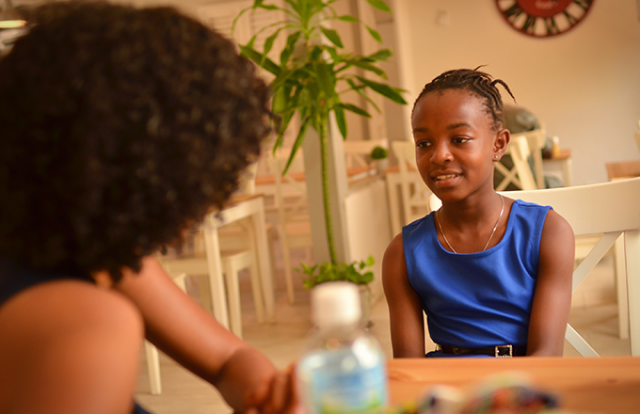
Nadia, left, and Fatima.
Meanwhile, Fatima is certainly blossoming through her relationship with Agnes. “She is nice to me and makes learning fun,” she says. “Today I want to learn about electricity. I want to be a scientist too.”
It’s a big commitment from the women mentors, but Agnes shows their determination to improve things in their own country and to create a buzz in the sector. “Lots of people in our fields see more opportunity elsewhere, but there’s so much that could be done to improve things here, especially for our girls in STEM,” she says. “Not everyone can just get out and go. Someone has to stay and help the next generation.”
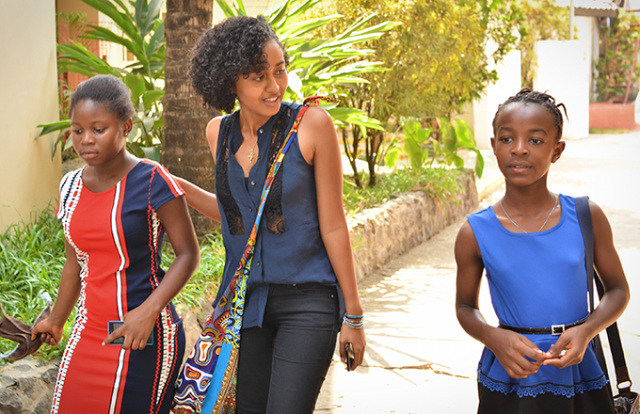
From left: Gladys, Nadia, and Fatima.
For Kumba, the most important things STEM Women can teach Sierra Leonean girls are to be cautious but never fearful and know that there’s nothing they are too small to do.
“You should always think things through,” says Kumba, “but my advice to any girl is that she should never be afraid to do what she thinks is right. Being a leader is about knowing both what to do and how you’re going to take action.”
